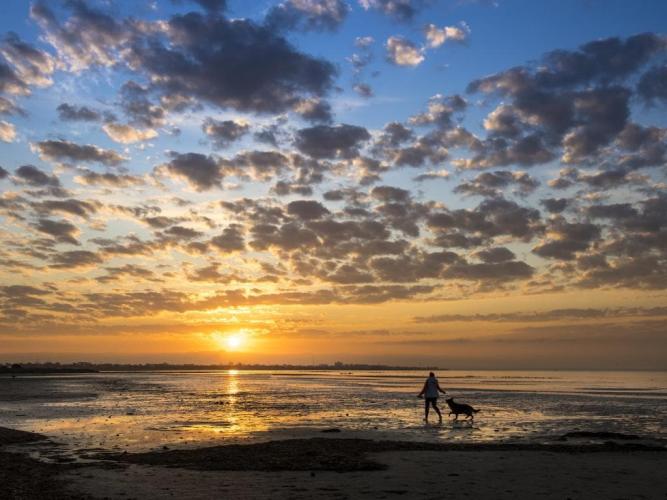Crush the curve — and accept life will change after this

Talking Point: Crush the curve — and accept life will change after this
JOHN BURGESS: Don’t buy in to nightmare scenarios — if we fight hard we can return to a functioning but different life
Like everyone on the planet, I take it personally, very personally.
SARS-CoV-2, the virus that causes the human disease COVID-19, strikes at the glue that binds our global community, our nation, our economy, our social and family lives. It attacks that most fundamental part of our humanity, our need to be social, to be in contact with others.
In my professional role as an endocrinologist, I care for vulnerable patients with chronic diseases such as diabetes.
In my hospital role as a clinical director with oversight responsibility for pathology, imaging, emergency department and intensive care unit services at the Royal Hobart Hospital, I see hospital teams who have worked tirelessly over the past six weeks to prepare for the eventuality of a surge in demand due to COVID-19.
I see the work of general practitioners, public health officials, pharmacists; the entire community health network preparing to stand up to and meet the coronavirus challenge. It’s been an incredible privilege to work with such people.
I’ve also seen the impact that the whole of community preparation has on Tasmanian’s daily lives, education, jobs, and economic prospects. It’s profound.
But we’ve all got each other’s back in this fight, and I do believe we can and will show some powerful wins over the coming 60 days if we continue to be strategic, resourceful and willing to learn from the mistakes and successes of other states and nations.
Our vision must be for tight containment of coronavirus through an effective system of isolation and quarantining, that’s combined with contact tracing.
With this approach, we will break the exponential spread of the virus, “Crushing the curve”, not just flattening it, should be our goal over the next month.
This will allow us to quickly adopt a brighter new normal way of living, learning and working, until the time when medical science brings us an effective vaccine and treatment for COVID-19.
To teach this better future, the level of COVID-19 infection in the community must be prevented from exceeding the maximum capacity of the healthcare system. This outcome will require substantial suppression of the coronavirus for the next 12 to 18 months. This is the approach that has been adopted by Singapore, and it is the model that can be immediately adopted by Tasmania.
Can we do this also? Yes!
In addition to following all the advice and measures currently recommended by our federal and state government health authorities, we must immediately provide world-class isolation care to all patients with active COVID-19, even when they are feeling well, yet are still infectious. This is the role of the medi-hotel network that AMA has recommended be made available to any Tasmanian who needs it. We must do this as much as we must provide world-class acute hospital care in HDU and ICU when Tasmanian patients with COVID-19 are severely ill. These two processes go glove in hand and must be fully resourced.
Backed up by a highly resourced contact tracing process led by our Public Health team, strict quarantine processes for those at risk of having contracted COVID-19 from an infectious contact, we in Tasmania could within 30 days be considering returning to a functional “new normal” of societal and economic activity.
It won’t be as it was before the COVID-19 pandemic, but it will be workable, it will save many, many lives and jobs. It will allow certainty for a new-normal in schooling and education that is safe and effective. It will give our frontline health staff in this battle a fighting chance to do their best to care for their fellow Tasmanians.
As the Marine Corps saying goes “Improvise, adapt, overcome”. We are at present deeply in the improvise phase and in places tentatively moving to adaptation. Overcoming the coronavirus with a vaccine will take time, but adaptation can still look like profound success for Tasmania and Australia relative to where we are today.
Don’t anyone buy in to suggestions that nightmare scenarios of overwhelmed hospitals, broken economies with perpetual lockdowns are inevitable. It’s not.
That’s quitter talk. Similarly, anyone who thinks this will be over and the world and society will return to the old normal in six months knows something the experts don’t. What I know is that in Tasmania we are profoundly fortunate and must leverage every ounce of our natural advantage as an island and as a resourceful people to ensure we forge our path to better future and do it right now.
Dr John Burgess, a Hobart endocrinologist and a University of Tasmania professor, is president of the Australian Medical Association Tasmania.